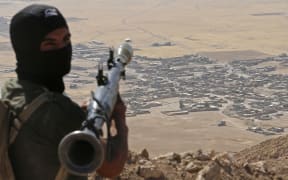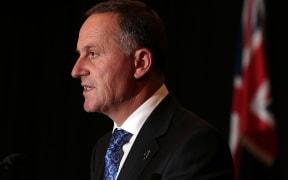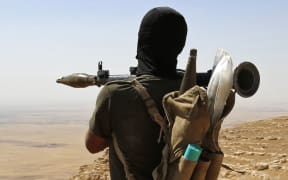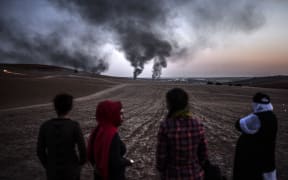After months of hints and careful messaging, Prime Minister John Key has finally announced details of the Government's response to what it sees as the threat posed by jihadist group Islamic State.
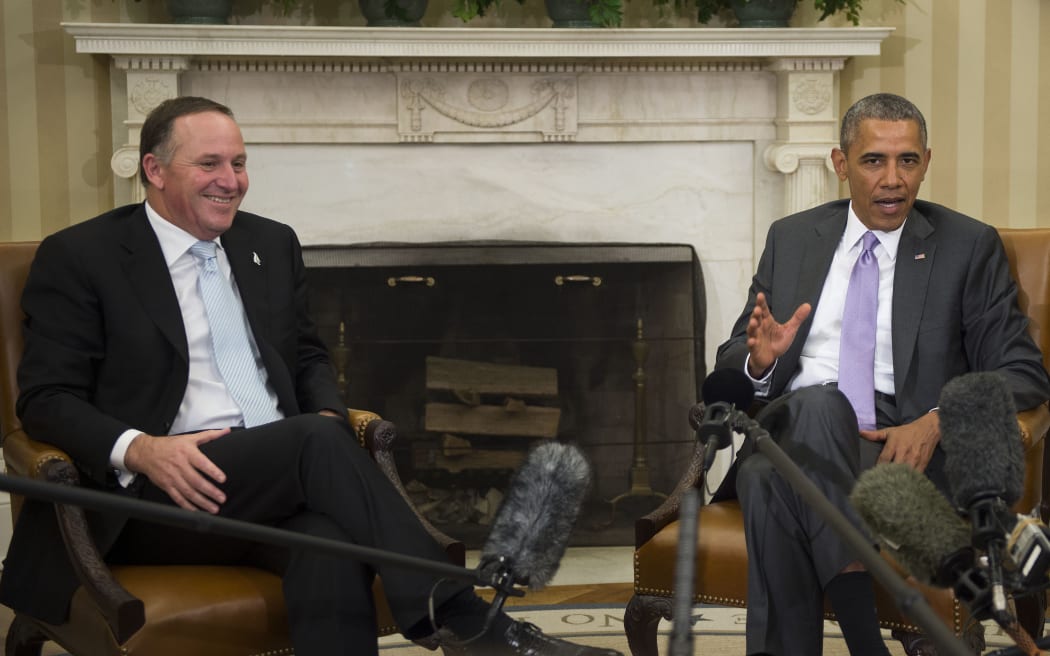
Prime Minister John Key with US President Barack Obama earlier this year. The US is leading an alliance against Islamic State. Photo: AFP
There are two elements to Mr Key's announcement.
First, this country will not be sending combat troops to Iraq to fight IS. Instead, military planners are on their way to that country to investigate what role New Zealand could play in training Iraqi soldiers.
It is almost inevitable that New Zealand troops will then be sent to Iraq to provide that training.
Mr Key is adamant they will remain behind the wire. That is, they will stay in supposed safe locations and not venture into hostile territory. Just to be extra safe, Mr Key says SAS troops are likely to accompany regular forces to protect them.
Opposition parties and even National's own support partners - United Future and the Maori Party - oppose sending any military personnel to the region.
They worry - and there is precedent for this - that it is simply a slippery slope towards active involvement in the fight with Islamic State. Once there, it would be more difficult for the Government to reject requests for direct help if the United States-led alliance decided it needed to put troops on the ground to defeat IS.
It would also be typical of Mr Key's political strategy. He gets his way bit by bit, slowly and gradually pulling the public along with him.
The language he and his ministers have used has become increasingly strident as they have built the public relations case for action. That has also helped justify the Government proposing to extend the powers of the Security Intelligence Service - and in consequence reduce the freedoms of New Zealanders - to deal with New Zealand residents and citizens who want to fight with or support Islamic State.
Mr Key has increasingly used the spectre of a terrorist attack here to justify his actions.
Remember that just weeks ago only a handful of people in this country, according to Mr Key, were associated with Islamic State.
By this week, Mr Key was saying that New Zealanders would be surprised by how many people were involved. In his speech to the Institute of International Affairs he then said 30 to 40 people were on a watchlist, while up to another 40 needed to be investigated to determine whether they posed a threat.
He said a number of those on the watchlist were capable of carrying out attacks here in New Zealand - similar to those seen in Australia or the attack on Parliament in Canada.
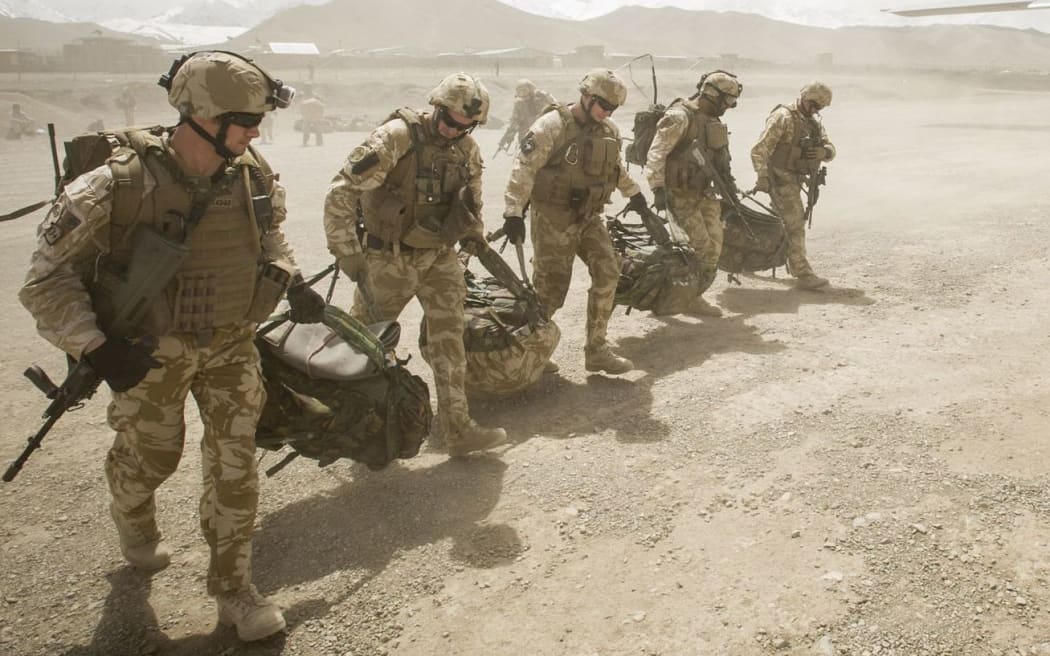
New Zealand troops served in Afghanistan for 10 years as part of the Provincial Reconstruction Team before leaving last year. Ten soldiers lost their lives. Photo: NZ DEFENCE FORCE
More power for SIS
In Parliament, Defence Minister Gerry Brownlee said the "reign of terror" being imposed by Islamic State was something the world had never seen before.
Afraid? You are meant to be - because governments find it easier to push through tougher security laws when their citizens fear for their safety.
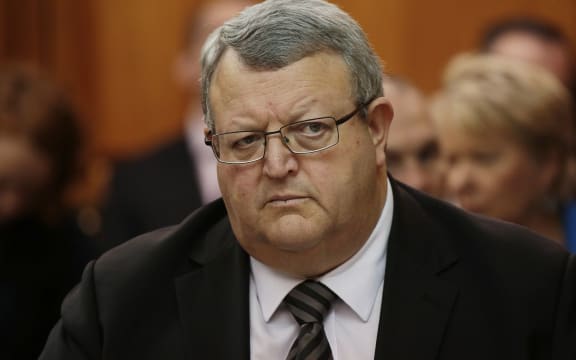
Gerry Brownlee Photo: RNZ / Diego Opatowski
There is no doubt Islamic State is a brutal organisation which does pose some threat, mostly to people in Iraq and Syria. But is it true its "reign of terror" is something the world has never seen before?
Mr Brownlee appears to have forgotten even recent history. Remember last decade and al Qaeda's attacks in New York and Washington on September 11, 2001, the bomb attacks on the London Underground and a bus, the Bali bombing, the bombing in Madrid. Not to mention the many more thousands of civilians who have died in Syria, Iraq, Afghanistan and Pakistan, just to name a few countries, as the result of terrorist attacks.
Under the proposed legislation, the SIS will get the power to conduct video surveillance on private property. What concerns many Opposition MPs is a proposal to allow the SIS to do so without a warrant for up to 48 hours.
Mr Brownlee gives the assurance that, if such an operation does not get a warrant, any evidence gathered will not be admissible in court. That, though, does nothing to mitigate the intrusive powers being given to the SIS.
The Labour Party, while opposed to any military involvement in Iraq, supports in principle the Government's move to clamp down on Islamic State sympathisers here. But it too worries about giving the SIS too many powers.
Much will depend on how the legislation is drafted and what civil liberty safeguards are put in place. But however it is written, this marks a further encroachment on civil liberties in this country.
The Government dismisses those who raise such concerns. Its attitude was aptly illustrated in Parliament on Wednesday when its MPs barracked Green Party co-leader Metiria Turei as she outlined her party's opposition to what is proposed.
The legislation granting the SIS wider powers is still being drafted and it will go to a select committee, but only for a truncated period of consideration.
It will give MPs and the public scant time to consider the full implications of the legislation. Nor will they get the full information they need to properly assess the validity of the Government's proposal.
But fear, whether justified or not, is likely to influence the public to trust the Government that giving up a little bit of freedom for a bit more security is worth it.
